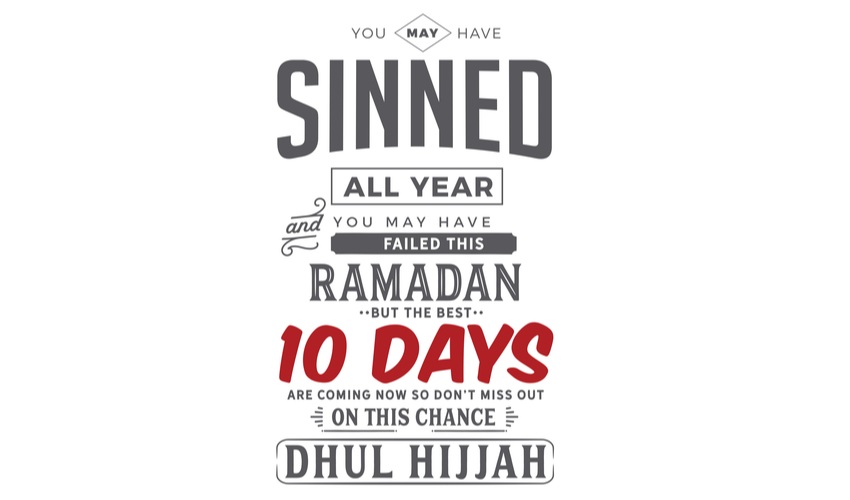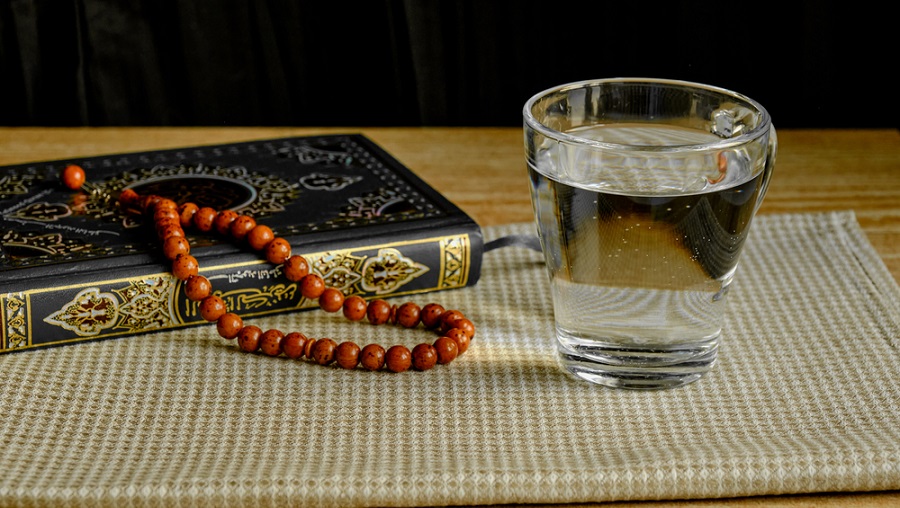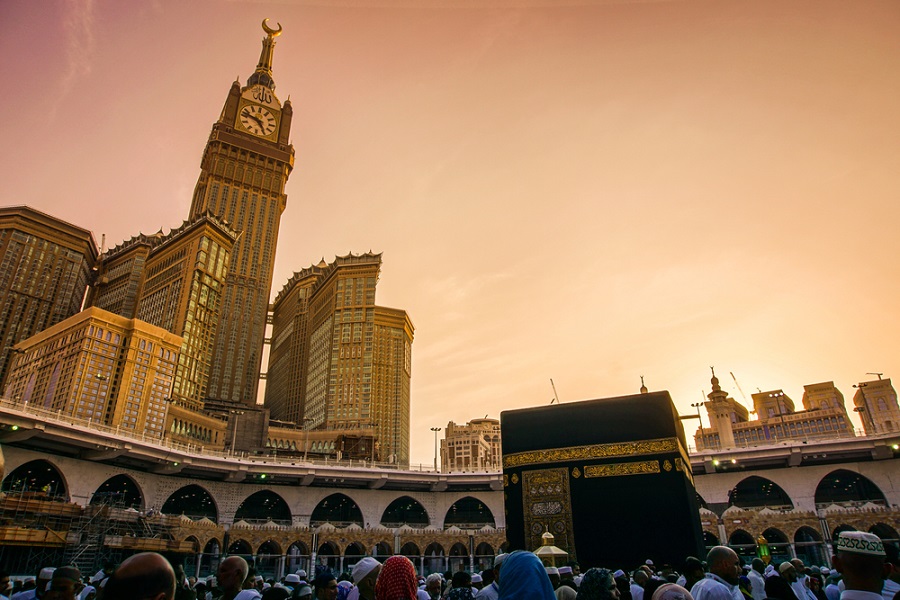In Islam, the 12th and the final month of the lunar calendar, Dhul Hijjah holds great value and is considered sacred by Muslims. During this month, the followers of Islam undertake the journey of Hajj and visit the holy Kaaba in Makkah. The literal meaning of the name of this month is the ‘possessor of the pilgrimage,’ and Hajj is performed during its eighth, ninth, and tenth days.
It is also spelled as Dhu al-Hijjah and Zu al-Hijjah. In this month, Muslims hold the festival of sacrifice and remember the almighty Allah during the blessed days of the year to get rewards from him. Muslims believe that Dhul Hijjah fasting is a virtuous act and performing good deeds during this time earns expiation from sins. People committed to remembering Allah and observing fast during Dhul Hijjah need to know the following details about this month to make the most of it.
Significance of fasting during Dhul Hijjah
The month of Dhul Hijjah is important for Muslims. In a Dhul Hijjah Hadith, Prophet Muhammad (PBUH) said that there are no deeds as magnificent as the ones committed during these 10 days. Upon hearing it, when listeners enquired if even Jihad was not equal to it, the Prophet replied negatively and said not even Jihad except a man who goes forth putting his life and wealth in peril and does not return with anything. Therefore, Muslims believe that these first 10 days of Dhul Hijjah possess tremendous power and spending them in worship and virtuous deeds earn favour from Allah. And, since Islam sees fasting as one of the greatest deeds and the best form of worship, Dhul Hijjah fasting is recommended.
In another Hadith, it is mentioned that there are no days more beloved to God than the first 10 days of Dhul Hijjah. Fasting every day during this time is equivalent to fasting the whole year and standing in prayer at night is like standing on the night of Qadr. From this Hadith, one can be certain that fasting during these days and praying Tahajjud at night is one of the best ways to maximize rewards. Further, sacrificing sleep, food, and drink for Allah during these days helps in reaping the benefits of the sacred month. However, for people, who are unable to observe fast during the ten days of Dhul Hijjah, all hope is not lost, since only fasting on the day of Arafah (the ninth day of the month) is also beneficial. Prophet Muhammad (PBUH) said that fasting on the day of Arafah redeems the sins of the past and the coming year.
Dhul Hijjah Fasting Benefits
Observing fast during this time of the year earns the following benefits:
1. Akin to fasting for a whole year
In Islam, it is believed that the Messenger of Allah said that the 10 days of Dhul Hijjah are more beloved to the almighty than any other time of the year. One who practices Dhul Hijjah fasting earns the same blessings as someone who observes abstinence from food for the whole year.
2. Aids in the atonement of the sins
The rewards of practising abstinence from food on the auspicious day of Arafah, the ninth day of Dhul Hijjah, are great. According to the Prophet Muhammad (PBUH), fasting on Arafah earns people expiation from the sins of the past and upcoming year. Hence, Dhul Hijjah fasting is recommended.
3. Release of the soul from hellfire
According to the ardent followers of Islam, the Prophet Muhammad (PBUH) said that on no other day, Allah sets as many souls free from the fire of hell as he does on the day of Arafah. Thus, Dhul Hijjah fasting and praying earn protection from hellfire.
How to pray during Dhul Hijjah?
One can earn several rewards by fasting during the blessed days as Dhul Hijjah fasting benefits are numerous. Besides practising abstinence from food, Muslims also engage in prayers and reading Duas to please god. Reciting the following prayers and offering thanks and praise to Allah during the sacred month is considered a good deed:
1. Recite Takbeer, Tasbeeh, Tahmeed, and Tahleel
Muslims believe that it is Sunnah to recite Takbeer (Allahu Akbar), Tahleel (La Ilaha Ill-Allah), Tahmeed (Allamdulillah), and Tasbeer (Subhanallah) during the ten days of Dhul Hijjah. One should recite these prayers abundantly during Dhul Hijjah fasting whether he/she is at home, on streets, in the masjid, or on his/her way to work. Remembering and glorifying Allah in this way is a virtuous act.
2. Read Takbeerat-e-tashreeq
Besides Dhul Hijjah fasting, one should try to please Allah during the last month of the Islamic calendar by reading Takbeerat-e-tashreeq. Men can recite this prayer after every Fard Salah beginning from the Fajr of the ninth day to the Asr of the 13th day in a loud voice. However, according to the spiritual guides, women should offer their prayers to god silently.
3. Recite Tahlil
During the holy month, the believers of Islam frequently read Tahlil (there is no god but Allah) to please the almighty. Making this Dua on the day of Arafah, after facing the Qiblah and raising hands in complete submission, reaps benefits. Sincerely asking Allah for forgiveness when practising Dhul Hijjah fasting and offering the mentioned Dhikr earn forgiveness.
Recommended acts for the month of Dhul Hijjah
Dhul Hijjah is a beloved month of Allah, and to make the most of it, believers should engage in the following deeds:
i. Offer Sacrifice
To please Allah, one should offer a sacrifice to God and earn his blessings. Aishah, the third and the youngest wife of Prophet Muhammad (PBUH), narrated that the Prophet once explained that offering a sacrifice is the best action that a Muslim can perform on Eid.
ii. Perform Hajj
Muslims should go on the holy pilgrimage of Hajj during the month of Dhul Hijjah. Going on the sacred journey to Kaaba will please Allah. People who decide to go on Hajj during the blessed 10 days of the month should remember that they do not need to observe Dhul Hijjah fasting.
iii. Practice Repentance
During the first 10 days of Dhul Hijjah, one must seek repentance from Allah and pray for forgiveness. Some Muslims believe that reciting Subhan-Allahi Wa Bihamdihi and offering praise and glory to Allah 100 times a day during the holy month of Dhul Hijjah will earn forgiveness and wipe away all sins.
The month of Dhul Hijjah is the ideal time for seeking the blessings of Allah by practising Dhul Hijjah fasting, undertaking the holy journey of Hajj, and praying to the almighty during night. Performing good deeds and sacrificing food during the first 10 days of Dhul Hijjah month will atone believers of their sins.
Dhul Hijjah FAQs
What are Dhul Hijjah fasting benefits?
During Dhul Hijjah, observing a fast helps a person to atone for the sins of the upcoming and previous year. Fasting every day during the blessed days is akin to fasting for a year.
Did Prophet Muhammad (PBUH) observe fast during the 10 days of Dhul Hijjah?
Yes, Hazrat Hafsah said that the Messenger of Allah used to fast during the first nine days of Dhul Hijjah, on the day of Ashura, and three days of every month.
Is it compulsory to fast on the ninth day of Dhul Hijjah?
According to the believers of Islam, unlike during the month of Ramadan, fasting on the ninth day of the blessed month is not mandatory. However, Dhul Hijjah fasting pleases Allah and is highly recommended.
What is the importance of the day of Arafah?
The day of Arafah is sacred for Muslims as it was on this day when the Prophet Muhammad (PBUH) delivered his farewell sermon on mount Arafah to those who went on Hajj with him.
What happens on the 10th day of Dhul Hijjah?
On the 10th day of Dhul Hijjah, Muslims around the world celebrate Eid al-Adha to commemorate the readiness of Prophet Abraham to sacrifice his son for the sake of Allah.












